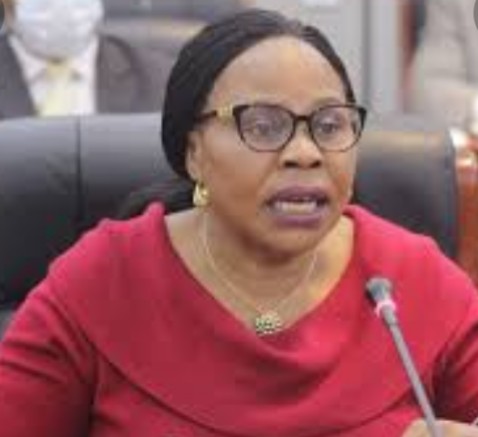|
Getting your Trinity Audio player ready…
|
By Lazarus Sauti
The Zimbabwean mainstream and alternative mediascape are awash with gory headlines and stories of political violence, murder, rape, gender-based violence (GBV), and robberies.
Words and metaphors of war, like ‘butchered’, ‘ripped’, ‘smashed’, ‘evil’, ‘pathetic’, ‘thug’, ‘helpless’, or ‘clobbered’ are used in most, if not all, news reports regarding these issues.
These words and descriptions fuel conflict in society.
Officially opening the virtual Rotary/Makerere Peace Journalism Training Programme recently, Minister of Information, Publicity and Broadcasting Services, Hon. Monica Mutsvangwa said words of war incite violence as exemplified in the unfortunate Rwandan genocide.
“Several decades after the unfortunate Rwandan genocide, principally because of the role of the media, the world still shudders to think that it was all because the media did not report responsibly,” she said.
Mutsvangwa added that the media’s coverage of the 2007 Kenyan election period contributed to the escalation of conflict resulting in loss of life, displacement of persons, and destruction of property.
“We do not want such in Zimbabwe or anywhere else in the world,” she said. “Our media must be responsible because they have the power to uphold peace or throw it away at the tip of the pen.
“As the old adage goes, the pen is mightier than the sword and indeed journalists must understand this power and develop attitudes that ensure that peace is upheld at all costs.”
Mutsvangwa went further to say the Government’s initiative of establishing community radio stations across the country creates a structural framework on which cooperative engagement of communities can be founded.
She believed the initiative will cement the capabilities of response mechanisms to contain conflict at that level towards strengthening peace.
Peace Journalism Training Programme co-ordinator for southern Africa, and Makerere University Rotary Peace fellow, Patience Rusare said the media should get rid of the idea that ‘if it bleeds, it leads’ and focus more on solution-based journalism.
“A positive story can sell news if it is a good enough human-interest story”, she said, adding that news reports should create peaceful environments where peace-building and transformation can flourish.
Rusare encouraged journalists, editors, and other media practitioners to lock down sensationalism in their reports, sanitise news pages and airwaves from abuse, distance themselves from misreporting, and wear their masks of patriotism and responsibility.
For media trainer, Admire Masuku, the functions of the media are not only limited to exposing wrongdoings but looking at both success and failures and shining light in dark corners.
He further said the media, as a powerful instrument in social construction, should empower Zimbabwe and her general citizenry to participate in governance and development issues.
“Reliable and responsible media should empower citizens to demand accountability, exercise their rights as right-holders as well as help to resolve conflicts,” Masuku said.
For Luxembourg Peace Prize Laureate, and Park University Lecturer Professor Steve Youngblood, the Zimbabwean mediascape is partially free and as such it is difficult for peace journalism to flourish.
He thus urged editors, reporters, and other media practitioners to make informed choices that improve the prospects for peace.
“Peace journalism nurtures democracy and development. As such, the media should give voice to the voiceless, instead of propagating the dominant narratives of the elites and those in power,” Youngblood said.
He also encouraged the media to carefully choose and analyse the words and metaphors they use in news reporting, understanding that carelessly selected words are often inflammatory.
“Demonising language such as thug or evil, victimizing language like helpless or pathetic, and emotional language such as brutal or tragedy puts petrol on the fire. They make angry people angrier,” Youngblood added.
In his book, Peace in the Age of Chaos: the Best Solution for a Sustainable Future, Steve Killelea said humanity is facing major challenges, including political violence, insurgencies, climate change, pandemics, food security, decreasing biodiversity, and lack of usable freshwater.
He added that these challenges are fueling conflicts and threatening peace and human security.
The media should, therefore, be at the forefront of fighting these challenges, building positive peace, as well as creating the optimal environment for human potential to flourish.
